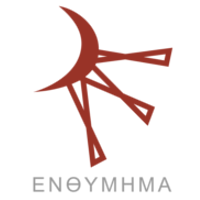Internet e letteratura: la fine di un idillio?
DOI:
https://doi.org/10.54103/2037-2426/19553Parole chiave:
Letteratura contemporanea, Internet, Social network, Convergenza, Wu Ming, Tommaso Pincio, Aldo Nove, Narrative turnAbstract
L’influenza esercitata dalle nuove tecnologie dell’informazione sulla creazione e sulla pratica letteraria, così come le evoluzioni e i mutamenti dei modi di comunicazione e di produzione delle opere, conducono ad analizzare il grande laboratorio che è il web e il rapporto che esso intrattiene con la letteratura. Dopo più di vent’anni, questa relazione sembra entrare in una fase più istituzionalizzata, in cui l’entusiasmo lascia il posto a posizioni più prudenti, anche da parte di autori integrati. Per tale ragione, lo scopo di questa riflessione è l’analisi dello sguardo che alcuni autori portano sulla rete e sulle dinamiche socio-culturali a cui dà vita. Partendo dalla riflessione condotta dal collettivo Wu Ming sul blog Giap e prendendo in esame Panorama di Tommaso Pincio e Anteprima Mondiale di Aldo Nove, si cercherà di analizzare le trasformazioni prodotte nel campo socio-letterario dall’uso delle nuove tecnologie e di capire le critiche mosse alla mediasfera e alle sue pratiche comunicative nella società contemporanea.
Downloads
Riferimenti bibliografici
Baroni, Raphaël. “L’empire de la narratologie, ses défis et ses faiblesses”. Questions de communication, vol. 30, 2016, pp. 219-38.
Cacopardi, Irene. De Luther Blissett à Wu Ming: une république littéraire démocratique?. L’Harmattan, 2021.
Cardon, Dominique. La démocratie Internet. Promesses et limites. Seuil, 2010.
Blondeau, Olivier, e Laurence Allard. Devenir Média. L’activisme sur Internet, entre défection et expérimentation. Amsterdam éditions, 2007.
Carr, Nicolas. Internet ci rende stupidi? Come la rete sta cambiando il nostro cervello. Trad. di Stefania Garassini. Raffaello Cortina Editore, 2011.
Casadei, Alberto. Letteratura e controvalori. Critica e scritture al tempo del web. Donzelli, 2014.
Castells, Manuel. Communication et pouvoir. 2009. Edition de la MSH, 2013.
Cortellessa, Andrea. “Ipocalittici o integrati. Romanzo a chiave di un falsario collettivo con ambizion di conflitto sociale.” wumingfoundation.com, www.wumingfoundation.com/italiano/rassegna/140799.htlm.
Damiani, Luca. Bufale. Breve Storia delle beffe mediatiche da Orson Welles a Luther Blissett. Castel-vecchi, 2004.
Fiormonte, Domenico. Per una critica del testo digitale. Letteratura, filologia e rete. Bulzoni, 2018.
Foucault, Michel. “Le panoptisme”. Philosophie. Anthologie, di Foucault, Gallimard, 2004, pp. 516-530.
Goffette, Jérôme. “De l’humain réparé à l’humain augmenté. Naissance de l’anthropotechnie”. L’humain augmenté, a cura di Édouard Kleinpeter, CNRS Editions, 2013, pp. 85-106.
“Internet, un nouveau mode de communication?” Réseaux, vol. 97, n. 17, 1999.
Ippolita. Nell’acquario di facebook. La resistibile ascesa dell’anarco-capitalismo. Ledizioni, 2012.
—. Il lato oscuro di Google. Milieu, 2018.
—. “La rete è libera e democratica”. Falso! Laterza, 2014.
Jenkins, Henry. Convergence Culture: Where Old and New Media Collide. New York UP, 2014.
Kreiswirth, Martin. “Trusting the Tale: The Narrativist Turn in the Human Scien-ces”. New Literary History, vol. 23, n. 3, 1995, pp. 629-57.
Lévy, Pierre. L’intelligenza collettiva. Per un’antropologia del cyberspazio. 1994. Trad. di Maria Colò, Feltrinelli, 1997.
Luther Blissett. “Il network degli eventi. La visione della rete”. lutherblissett.net, www.lutherblissett.net/archive/337_it.html.
Mancini, Leonardo. Carmelo Bene: fonti della poetica. Mimesis, 2020.
Mapelli, Maria Maddalena. Per una genealogia del virtuale. Dalla specchio a Facebook. Mimesis, 2011.
McLuhan, Marshall. Understanding Media: The Extensions of Man. McGraw-Hill, 1964.
Molino, Jean, e Raphaël Lafhail-Molino, Homo fabulator. Théorie et analyse du récit. Leméac, 2003.
Mordenti, Raul. Intervista a “Italianistica & Internet” : rivista interattiva dell’UFRJ. 2010.
Muchetti, Luca. Storytelling. L’informazione secondo Luther Blissett. Arcipelago Edizioni, 2007.
Nove, Aldo. Anteprima Mondiale. La Nave di Teseo, 2016.
Phelan, James. “Who’s Here? Thoughts on Narrative Identitiy and Narrative Imperialism”. Narrative, vol. 13, n. 3, 2005, pp. 205-10.
Petruzzi, Vincenzo. Il potere della Gamification: usare il gioco per creare cambiamenti nei comportamenti e nelle performance individuali. FrancoAngeli, 2015.
Pincio, Tommaso. Panorama. NNE, 2015.
Sartori, Giovanni. Homo videns. Televisione e post-pensiero. Laterza, 1999.
Wu Ming. “L’amore è fortissimo, il corpo no. 2009-2019, dieci anni di esplorazioni”. wumingfoundation.com, 19 dicembre 2019, www.wumingfoundation.com/giap/2019/12/lamore-e-fortissimo-il-corpo-no-2-dieci-anni-di-twitter/#4e.
Wu Ming 1, La Q di complotto. Qanon e dintorni. Come le fantasie di complotto difendono il sistema. Allegre, 2021, ebook.
Zangrilli, Franco. “Sulla genesi di Panorama: intervista a Tommaso Pincio”. diacritica.it, 10-25 agosto 2016, www.diacritica.it/letture-critiche/sulla-genesi-di-panorama-intervista-a-tommaso-pincio.html.
Dowloads
Pubblicato
Come citare
Fascicolo
Sezione
Licenza

Questo lavoro è fornito con la licenza Creative Commons Attribuzione 4.0 Internazionale.

Except where otherwise noted, the content of this site is licensed under a Creative Commons Attribution 4.0 Unported License.





